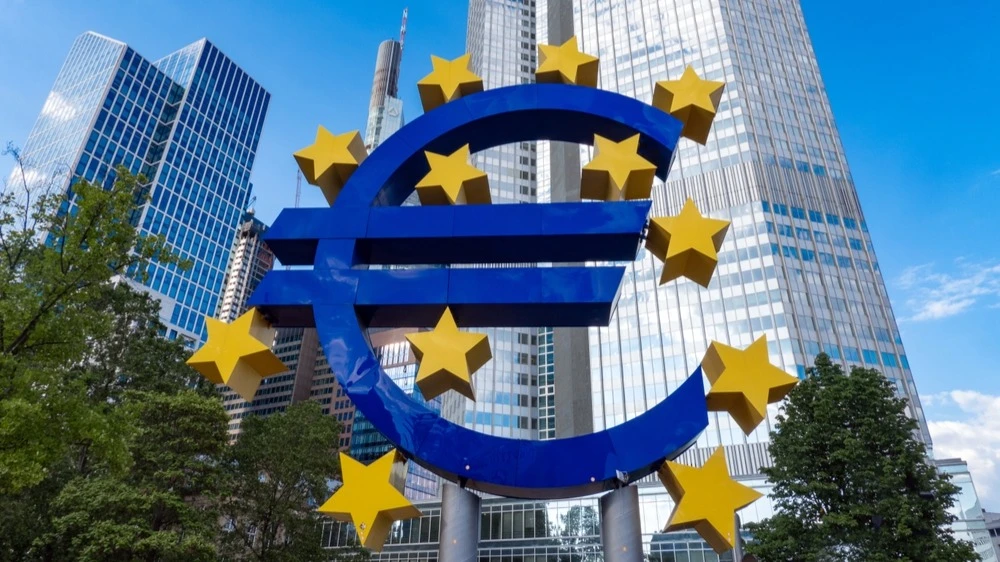"The situation is highly uncertain": the ECB left the rate unchanged for the first time in a year

The European Central Bank did not change interest rates for the first time in more than a year. This decision coincided with the expectations of market participants. The regulator noted that inflation has reached the target level of 2% and is under control, but the external environment remains highly uncertain, especially against the background of trade disputes. ECB head Christine Lagarde said: we can say that the current interest rates are "frozen", and the regulator itself is in a "wait and see" mode;
Details
The European Central Bank's Governing Council decided at the end of a two-day meeting to leave three key rates unchanged for the first time in more than a year, said a statement on the regulator's website. It was unanimous, ECB chief Christine Lagarde told a press conference afterward.
- The key deposit rate remained at 2%;
- The benchmark interest rate has been maintained at 2.15%.
- The marginal lending rate remains at 2.4%.
The decision was in line with the expectations of most economists, surveyed by Bloomberg. The ECB noted that inflation has reached the 2% target and forecasts point to its stabilization at that level in the medium term. Domestic price pressures are easing, wage growth is slowing and the economy has shown resilience in a difficult global environment - thanks in part to earlier decisions to cut rates. "At the same time, the situation remains exceptionally uncertain, especially due to trade conflicts," the ECB emphasized. Lagarde called the current level of the deposit rate "a good indicator" for maneuvering with the current uncertainty in trade and other geopolitical developments.
What's in the markets
The European STOXX 600 index lost almost all of its daily gains, slipping from +0.5% to +0.1%, while the German benchmark DAX reacted the same way. The euro weakened by 0.3%, but as Lagarde spoke, it recovered the decline and was trading almost unchanged at $1.17 at the time of publication of this text.
What's next
Now the main question is whether the ECB will reduce rates further - since June 2024 the regulator has done it eight times in a row - or whether the easing cycle is over, Bloomberg writes. During the speech of Lagarde investors reduced their expectations: now they expect to reduce rates by 20 bps by the end of the year instead of the previous 22 bps. And if before the publication of the ECB decision the probability of September reduction was estimated at 40%, now only 25%, the agency notes. The head of the regulator recognized that the inflation outlook has become more uncertain, and a stronger euro may accelerate inflation more than expected, Bloomberg.
"As long as core and services inflation remain above 2%, and the story of fiscal stimulus in Germany and the rest of the eurozone persists, there is little reason for the ECB to abandon its 'good position,'" said ING's Carsten Brzeski as quoted by Bloomberg. - However, if we see two more weak inflation reports over the summer, and macroeconomic indicators are worse than expected, it is possible that the September meeting will see the last [of this year's] rate cuts."
Context
The ECB met less than two weeks before Donald Trump's deadline to strike a trade deal with the EU and other countries. Although the EU has prepared retaliatory measures - potentially painful for the economy - diplomats hope to agree on a 15 percent duty, Bloomberg notes. Financial Times sources confirmed the day before that progress is being made in U.S.-EU trade talks, with the two sides converging on a 15 percent prime rate, modeled on the deal with Japan.
Berenberg chief economist Holger Schmieding believes that under this scenario, the ECB will probably not have to continue cutting rates. Lagarde declined to comment on the talks, calling such discussions "speculation" and emphasizing that news should be assessed "day by day."
ECB Vice President Luis de Guindos has already warned that economic growth in the second and third quarters will be "almost zero" - companies accelerated business activity at the beginning of the year to get ahead of the duty hikes. Second-quarter GDP data will be released on July 30, Bloomberg specifies. So far, fresh statistics confirm his forecast: business demand for credit remains weak, and business activity in the private sector is recovering only gradually. The head of the ECB noted that the increase in duties and the strengthening of the euro reduce the determination of companies to invest.
This article was AI-translated and verified by a human editor
